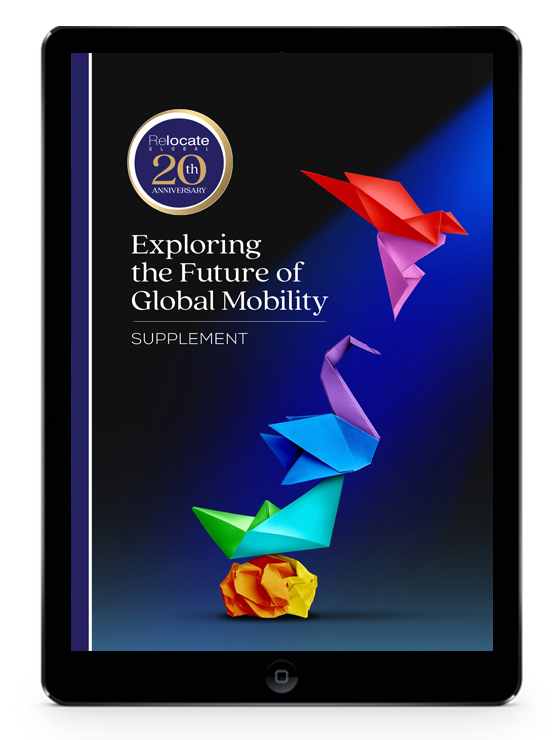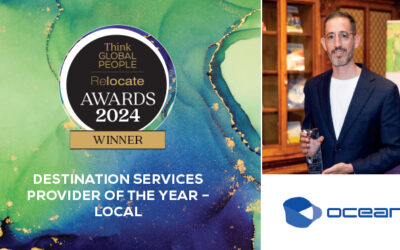Risk management and global mobility in times of crisis
Today, Mark Zuckerberg’s comment “the biggest risk is not taking risks,” sounds off-key. Global Mobility, HR and their colleagues across international business face more frequent, newly identified and ‘blockbusting’ risks. Instead, IBM Vice Chairman Gary Cohen’s adage, “if you don’t invest in risk management, it’s risky business” has become much more pertinent, writes Ruth Holmes.
This is also an implied conclusion from the RES Forum’s latest in its series of timely and insightful reports, Global Mobility in Times of Conflict and Crisis, published in June 2022 and written by Michael Dickmann and Benjamin Bader.
The study acknowledges there has always been inherent risks to operating businesses and assigning people across borders. These risks occupy the spectrum from political, economic, social, technological, ecological and legislative (PESTEL). Regional and national conflicts, for example, are not a surprise and certainly not new. They, like others, can be prepared for to an extent. Yet, it is the speed and frequency of ‘Black Swan’ events like Covid-19 and Russia’s invasion of Ukraine that make risk management today different to what’s gone before.
For businesses, the Global Mobility (GM) profession, supply chain, individuals and organisations, now it is about moving beyond VUCA to being resilient and agile. This means being prepared for and expecting the next unexpected event. “Where VUCA once was, resilience and agility circulate as key strengths for HR professionals,” concludes David Esner, Director of the RES Forum, in the report. “Even in previous slowness to anticipate and respond we can find learnings and direction for the future.”
PRACTICAL LESSONS IN RISK MANAGEMENT FROM WESTERN MULTINATIONALS
Prompted by Russia’s invasion of Ukraine, the RES Forum began research into how the war has affected Global Mobility’s role. It collected data, interviewed experts and expatriates, and ran a virtual workshop to provide a picture of GM in times of crisis.
As well as a sobering picture of the human impact of war, it highlights what GM practitioners saw at the time as their organisation’s biggest challenges. The responses show every area of the business was affected and the important role of GM as internal expert from the outset.
The extent of the impact includes companies affected indirectly. For example, organisations not actually operating in Ukraine, but affected elsewhere as international embargoes tightened. This includes companies with operations in Russia, where managing communication and reputational risk became particularly important. It also left big questions around ‘where next?’ for strategy, people management and international HR.
“While the strategic decision to leave the Russian market was made very quickly in many organisations, the operational side was often managed poorly,” says the RES Forum’s report. “In other words, it is now up to GM to get non-Russian employees out of the country. Whether Russian employees will be given an opportunity to work abroad or simply laid off is another problem. Should the decision be made to retain them in the organisation, GM departments will face yet more logistical challenges.”
These multifaceted challenges are detailed in the survey findings, which reveal what organisations’ greatest risks are in response to the Ukraine war (see Box).
GREATEST RISKS ORGANISATIONS FACED IN RESPONSE TO THE UKRAINE WAR
1.Evacuation risks, including how to get Ukrainian men out of the country
2.Conflict escalation
3.IT security
4.Reputational risks
5.Supply chain risks
6.Workers’ rights, particularly for Russians working abroad
7.Salary payment issues, including the practicalities of international money transfers
8.Decreased willingness of employees to take overseas assignments.
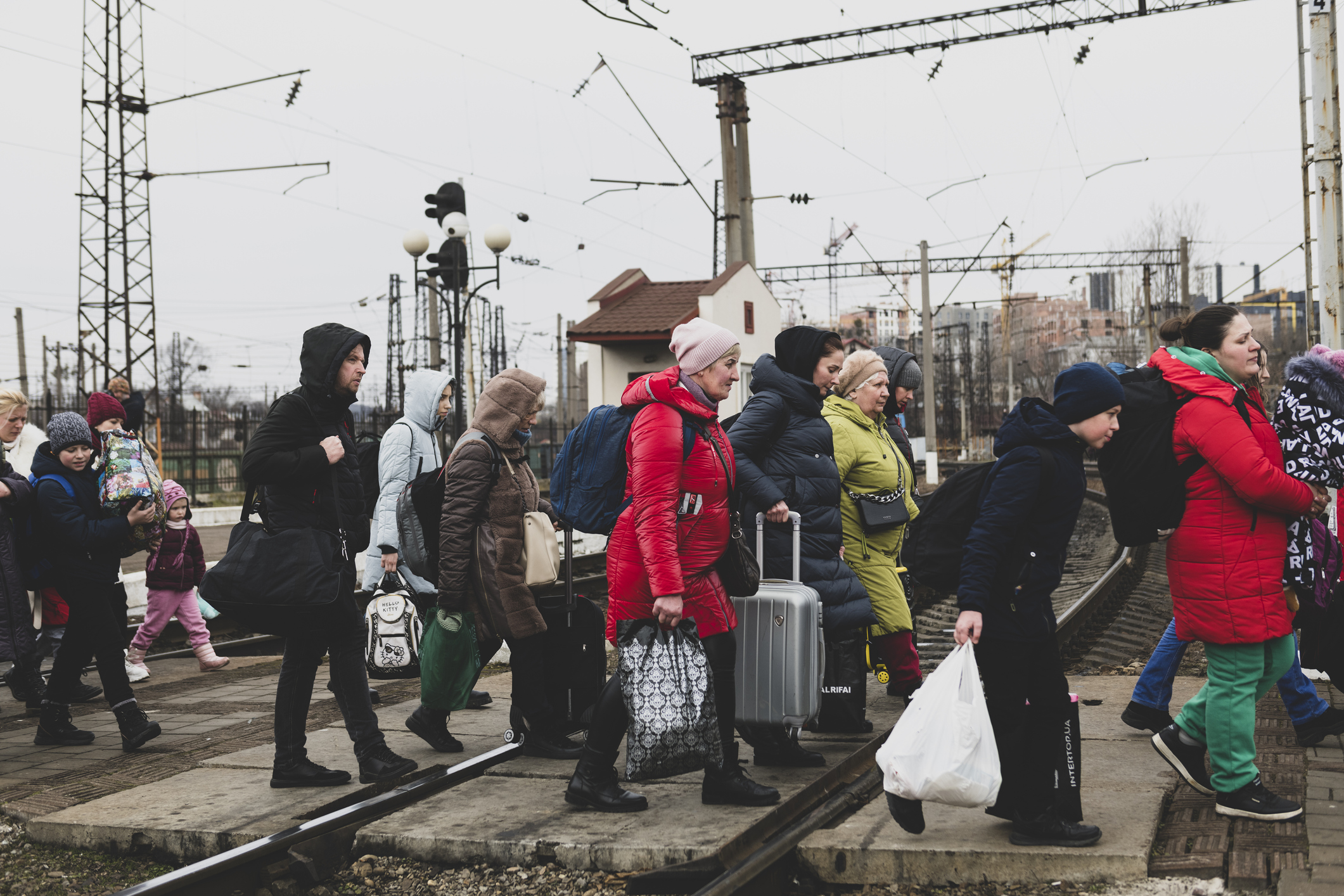
Above: March 3, 2022: Having just disembarked a train, people walk with their luggage across the tracks in Lviv, Ukraine. Photo by Joel Carillet
RESPONDING TO RISK – THE PEOPLE PERSPECTIVE
The responses highlight both the practical aspects of disaster planning and business continuity, as well as the human and ethical angles. In today’s purpose-led organisations, this reputational aspect is critical.
The authors point out that while it is necessary to think about this conflict on a professional level, “we must not forget that for the individual humans involved, this is an enormous tragedy. We are talking about severe injuries and the death of friends and family, brutal violence – both physical and emotional – and many other possible life-changing events. For international assignees in this situation, the world will never be the same again.”
This is an opportunity for the Global Mobility supply chain and partners to share their knowledge and support. There are many examples of this among the Think Global People Relocate Awards this year. This included the International School of London, which offered places for children of families evacuating from Ukraine and access to its excellent transitions care.
These vital links in the Global Mobility supply chain and partnerships are more important than ever in mitigating challenges and managing risks, with their focus on wellbeing for all the family. As conversations and best-practice sharing at the Future of Work Festival further highlighted, wellbeing continues to be a critical ingredient in building organisational and individual agility and resilience beyond simply evacuation.
Effective communication and effective risk management are at the core of the response – and indeed of every employers’ duty of care. It means that organisations, and GM, need plans in place before a critical event happens.
“One of the key success ingredients for GM in such situations is intensive communication with assignees and local employees,” says the RES Forum report. “This includes sharing information through a crisis response centre that can be contacted at any time. In addition, it is critical to have an effective employee tracking system, providing an overview of how developments might affect different people.”
PREPARING FOR EXTENSIVE RISKS
The RES Forum has several risk-management benchmarking tools and comprehensive risk-management frameworks on its website. The membership body’s previous reports also cover the issues and signpost practitioners to useful approaches. These include questions to ask partners and vendors to enable a robust approach to risk management.
This latest report on Global Mobility in Times of Conflict and Crisis is part of an ongoing cycle of risk management that defines and identifies risks, assesses the level of threat and potential impact, and determines the risk-management approach. It emphasises the importance of proactive GM strategies to guide organisations through crises and conflicts that cover operations, as well as individuals.
The report also offers a “detailed perspective” on risk preparation from pre-crisis, acute crisis and post-crisis planning. As importantly, it speaks to the GM function’s highly relevant experience in this VUCA world, and therefore GM’s huge and growing value to the organisation at large.
The report recommends that, “A team comprising a cross-section of the organisation – HR, GM, operational business leaders – that can explore the broad business continuity implications and can work through a range of crisis scenarios in the aftermath of a conflict, is vital to improving future responses.”
This touches on another critical aspect for GM: its ability to communicate the importance of international assignments while balancing this with their viability in the current business, political and economic climates, and in a way that promotes their value for building businesses and relationships across borders.
Post-pandemic and in a tight labour market, international remote working and remote working are reshaping the risk and duty of care landscape – not least around wellbeing and engagement. Research into proximity bias and the importance of face to face, in-person interactions is already underway in this emerging area.
GM as a function, as a sector and a supply chain, all have a critical input into this conversation and the opportunity to influence for good.
As one senior GM leader puts it: “We have learnt from Covid and now from Ukraine that we need more in-depth scenario planning at a much more granular level…In case the conflict spreads to Lithuania and Estonia, we already have looked at accounts, locations and countries. This would mean that we have information to relocate our large employee populations from the Baltic countries to Spain. We know specific locations in Spain, have looked at office spaces and temporary employee accommodation.”
This comment clearly highlights the opportunities GM has to step up, communicate across the organisation, and be an even more critical strategic partner for resilient and agile businesses – and healthy employees and families.
Save the date
The Innovation Festival for Global Working
Join us on 8 June 2023 in Kent, UK
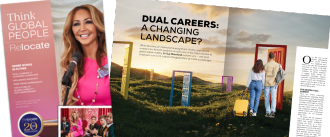
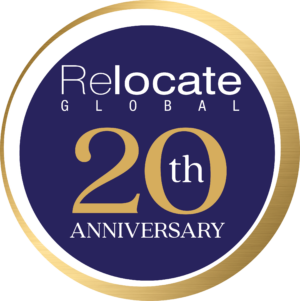
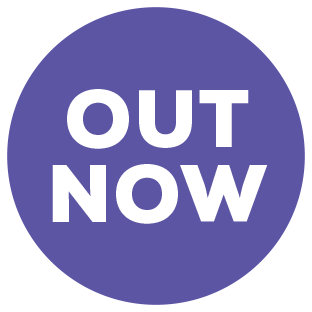 Magazine
Magazine